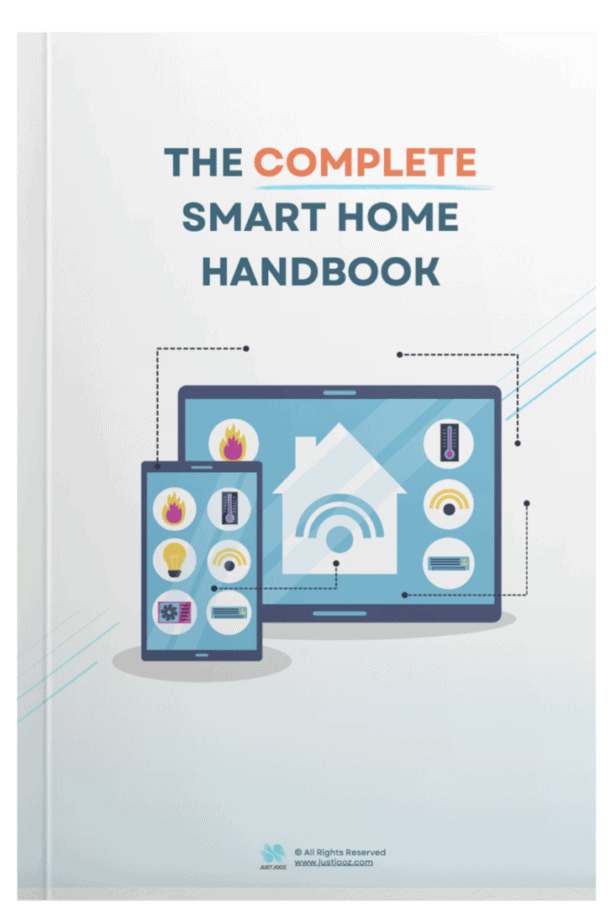How to Choose a Washing Machine: 9 Best Tips
We’re reader-supported; we may earn a commission from links in this article.
Doing laundry is a part of our daily routines, and a great washing machine can make it much easier and more efficient.
Buying the wrong washing machine can cause lots of problems with leaking, color runs, overloading, etc, which will cost quite a bit in repairs.
However, choosing the best washing machine doesn’t have to be daunting; we’ve got you covered with some tips on choosing the perfect washing machine for your home.
Read on to find out more!
How to Choose a Washing Machine
Here are some pointers you need to consider when you choose a washing machine.
1) Capacity
The first thing to consider is the size of the washing machine.
Refer to this chart for the recommended capacity for your washing machine.
| Family Size | Recommended Capacity |
|---|---|
| Single or Couple | 5 to 6.5 kg (2 to 3 cubic feet) |
| Family of 3-4 | 7 to 8.5 kg (4-5 cubic feet) |
| Larger Family or frequent washing | 9 kg and above (5.5 cubic feet) |
If you have a large family, you’ll need a machine with a larger capacity to accommodate all the laundry you’ll be doing.
On the other hand, a smaller-capacity machine will be perfect for a smaller household. So, assess your washing load and determine the appropriate capacity for your needs.
Also, consider if you have enough space at home if you live in a tiny house or have limited space in your kitchen/drying yard!
2) Energy Efficiency
Another factor to consider is the energy efficiency of the washing machine.
Investing in an energy-efficient machine can help you save money on your utility bills over time.
Consider machines with Energy Star ratings which means they are designed to use less energy and water while running.
Washing machines with high energy efficiency use less electricity and water per cycle, reducing your utility bills. Additionally, they’re environmentally friendly—less energy consumption means a smaller carbon footprint.
Some models also offer eco-friendly cycles that use less energy and operate at lower temperatures, which is beneficial for your clothes and the environment.
3) Type of Machine
The type of washing machine is another key consideration. There are primarily two types: top-loading and front-loading.
Top-loading machines are generally more affordable and faster. However, they consume more energy and water.
On the other hand, front-loading machines are more energy-efficient and gentler on
3) Type
There are two types of machines to consider – top-loading and front-loading.
Top-loading washing machines are generally more affordable and easier to load while front-loading machines use space more efficiently and are more energy-efficient.
Top-Loading Washing Machines
Top-loading washing machines are a popular choice because of their user-friendly design.
The lid on the top allows you to add or remove clothes without having to bend down, making it a convenient option for those with mobility issues or back problems.
Top-loaders also usually have a faster wash cycle compared to front-loading machines, which is an advantage for those who have larger laundry loads or are often in a hurry.
Additionally, they have a unique agitator in the middle that moves the water and clothes around, ensuring a thorough cleaning.
However, one downside of top-loading machines is that they tend to be less efficient in using water and energy.
This might increase your utility bills over time.
Also, top-loaders are often noisier and may require more maintenance over time, as the agitator can wear out clothes.
Nonetheless, the benefits of convenience, speed, and the ability to add clothes mid-cycle make top-loading machines a worthy choice for many households.
Consider what type is best for you based on your priorities.
Front-loading Washing Machines
I personally recommend front-loading washing machines, as I live in a big household.
While these machines may be more of an investment upfront, their larger capacity and higher efficiency typically make them worth it in the long run.
Front-loaders can handle larger volumes of clothes at once and are often more effective at cleaning heavily soiled items—both important considerations for bigger households.
4) Features
Washing machines come with different features, and you’ll need to determine which features are important to you.
Some features include a steam cycle, delay start, multiple spin speeds, and more.
Enhanced features can transform a mundane chore into a more streamlined and manageable task through its better user experience.
For instance, a washing machine with a steam cycle can penetrate fabrics more deeply than regular water, thus effectively removing stubborn stains and allergens.
A delay start feature allows users to set a specific time for the machine to start, offering flexibility to fit their schedules.
Multiple spin speeds enable customization based on the fabric type, preserving the longevity of delicate clothes.
Features like these provide a superior cleaning for your clothes and add convenience to your daily routine.
Therefore, when selecting a washing machine, it’s crucial to consider which features align best with your laundry needs and lifestyle.
5) Budget
Consider your budget when choosing a washing machine.
While more expensive models often have better features, you don’t want to overspend on a machine that offers more than you need.
The cost of a washing machine can range from $200 to over $1000. However, its cost can vary significantly, depending on factors like type, capacity, features, and brand.
Top-loading models are often cheaper, with prices starting around $200.
Front-loading machines tend to be pricier due to their higher efficiency and advanced features, often starting at around $400 and reaching $2000 for high-end models.
Remember, while staying within your budget is important, it’s also worth considering the long-term savings through energy efficiency and durability.
6) Noise Level
Depending on where you’re planning to place your washing machine, the noise level could be a significant factor.
Washing machines that operate quietly can significantly improve your living environment, particularly if your laundry area is adjacent to living or sleep spaces.
A noisy machine can cause disturbances, especially during late-night or early-morning wash cycles, potentially disrupting sleep or focus during home activities.
Furthermore, quieter washing machines often indicate better design and build quality.
Some machines have a quiet operation feature which could be beneficial if your laundry room is close to living or sleeping areas.
7) Spin Speed
The spin speed in washing machines refers to how fast the drum rotates to extract water out of the clothes.
It’s measured in revolutions per minute (RPM). Machines with a high RPM rating typically have faster and more efficient spin cycles.
A higher spin speed will remove more water, reducing the time it takes for your clothes to dry.
For example, a machine with a 1200 RPM spin speed will spin the clothes around 1200 times in one minute.
However, not all fabrics can handle high spin speeds without damage, so look for a machine with adjustable spin speeds.
A high spin speed can reduce drying time, allowing you to replace air drying your clothes or if you live in a damp climate where clothes take longer to dry.
On the other hand, not all types of clothes can tolerate high spin speeds. Delicate fabrics, for instance, may be damaged at higher RPM.
Therefore, it’s helpful to have a machine with adjustable spin speeds, allowing you to select lower RPM for delicate or heavy items which could stretch or distort with too much spinning force.
Another point to consider is that higher spin speeds typically come with more noise and vibration.
This could be a determining factor if your washing machine is positioned in a place where noise could be an issue.
In summary, while a higher spin speed can result in better water extraction and faster drying, it’s crucial to balance this against the potential for increased noise and wear on sensitive garments.
8) Wash Programs
Different types of clothes require different types of care.
Look for a washing machine that offers a variety of wash programs, such as delicate for your fine fabrics, heavy-duty for larger items like blankets, and quick wash for when you’re in a hurry.
A machine that offers programs such as ‘Delicates’, ‘Heavy-Duty’, or ‘Quick Wash’ caters to specific washing needs, safeguarding your clothes against wear and tear, and providing flexibility for time-sensitive laundry tasks.
This adaptability in care standards significantly enhances the value of a washing machine, making its purchase a judicious investment for your household.
9) Smart Features
Some modern washing machines offer smart features like Wi-Fi connectivity that lets you control your machine from your smartphone.
This can be a convenient feature, allowing you to start, stop, or monitor your laundry cycle from anywhere.
Remember, the best washing machine for you will depend on your specific needs and circumstances.
It’s always a good idea to do some research and comparison shopping before making a final decision!
Conclusion
Choosing a washing machine can be daunting, but with these tips, you can easily choose a machine that best suits your needs and budget.
Assess your washing load, consider your budget, and keep in mind important factors such as energy efficiency, capacity, features, and type.
A washing machine is an integral part of your household, and with a little bit of research, you can enjoy effortless laundry for years to come.

Justin Chia
Justin is the author of Justjooz and is a data analyst and AI expert. He is also a Nanyang Technological University (NTU) alumni, majoring in Biological Sciences.
He regularly posts AI and analytics content on LinkedIn, and writes a weekly newsletter, The Juicer, on AI, analytics, tech, and personal development.
To unwind, Justin enjoys gaming and reading.




